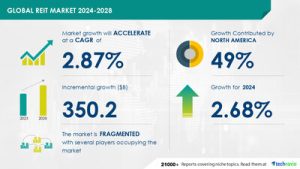
After the U.S. headline and core consumer price inflation rose in October, and the Federal Reserve Chairman suggested that a December rate cut may not be necessary, treasury yields have risen, and inflation concerns have gripped the economy once again.
Gordon Johnson, chief executive officer and founder at GLJ Research in a conversation with Wealthion slammed the Federal Reserve for making policies that benefit the stock market and asset owners in general.
Also read: October Inflation Rate Rises To 2.6% As Expected: December Interest Rate Cut Remains Uncertain
What Happened: Johnson said that the Fed’s $3 trillion in monetary stimulus in late 2021 after the one which was already announced in 2020, was “reckless” and it wasn’t “data dependent.” According to him, this was the Fed’s first step into taking a measure that “was going to result in an excessive inflation.”
He added that recklessness seen from the U.S. government and Congress on the fiscal front “is the byproduct of Fed allowing this.”
“Fed is the only entity that can legally create U.S. dollars, so if the Fed stopped printing and buying the Treasuries, which they are still doing, despite telling the public that they are doing quantitative tightening. The Congress won’t be able to spend so recklessly.”
Why It Matters: Johnson believes that there is constant intervention by the United States Secretary of the Treasury, Janet Yellen along with Federal Reserve’s Chairman, Jerome Powell, whenever there is a spike in the yield.
“In early 2024, the Fed cut its pace of quantitative tightening by $30 billion a month, which is just the amount they were letting roll off. And recently, Janet Yellen announced that she is going to buy $4 billion in U.S. Treasury bonds per week. There is just constant intervention by these entities whenever the yields start to spike. It’s them trying to disallow any disfunction or rather I would argue functioning in the Treasury markets.”
Johnson is of the opinion that if Yellen and Powell do not constantly intervene in the Treasury markets and let the market function on their own, some of this excess spending by the government would not be allowed.
“Without putting any breaks in this out of control train, I am afraid that we are going to get a reacceleration in the rate on inflation if the Fed doesn’t cool quantitative easing,” he added.
What’s The Solution: Johnson suggested that the solution to this is to go back to a simpler framework and look at the real economy and not the stock markets while formulating the monetary policy.
According to him, the current approach by the Federal Reserve’s policies is good for asset holders as stocks go up every day, but they are bad for the people living on W2 income who don’t own assets, just regular income.
He highlighted that based on the Fed’s website, the top 10% of the wealthiest persons in the U.S. hold 87% of stocks. So, when the Fed’s goal is to push stock prices up every day, all they are doing is exacerbating the already reckless wealth inequality that exists.
“Fed needs to focus on actual economy and if the economy does well, the stock market will be fine. The real economy is going to suffer if they fail to do so,” Johnson said.
President-elect Trump’s victory, combined with stronger-than-expected economic data, helped drive the S&P 500 Index higher. Although the index dropped 2.3% last week to 5,870.62, it remains above its pre-election level of 5,712.69 as of the close on Tuesday, Nov. 3.
Meanwhile, in premarket trading on Wednesday, the SPDR S&P 500 ETF Trust SPY, which tracks the S&P 500 Index, rose 0.13% to $591.05 and the Invesco QQQ ETF QQQ, which tracks the Nasdaq 100 Index, gained 0.10% to $503.96, according to Benzinga Pro data.
Photo courtesy of the Federal Reserve
© 2024 Benzinga.com. Benzinga does not provide investment advice. All rights reserved.


